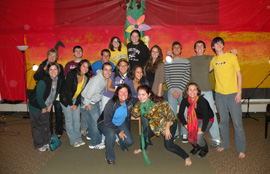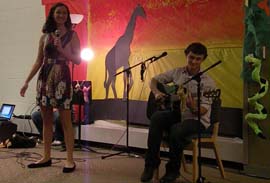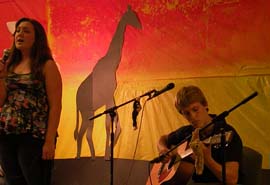AJ Reitter talks movie music and Ashley Lavery learns legalese.
AJ Reitter: Wagner to Williams: The Evolution of the Leitmotiv

It is very exciting to learn about why the film music we know and love today is so popular and successful; it all stems from the musical successes of 19th century operatic and symphonic techniques. The most challenging part of this research is my analysis of contemporary film music. Most film composers will not release their full scores to the public, so my analysis is done almost entirely through listening to a soundtrack. This is a major challenge with a score as dense as Star Wars, with several themes layered throughout, and it is difficult to listen in such a broad manner. It is also challenging to remember how all of the themes interact without being able to see it on a page in front of you, and so sometimes I have to musically dictate what I hear onto a piece of paper to keep everything straight.
From this experience, I am hoping to learn if I want to study film music for the rest of my life. After graduation, I hope to be attending either a Master’s or Doctoral program in Musicology, with the intent to be a music history professor someday. Writing my thesis has been very helpful in that it has taught me to synthesize varied sources and use what information already existed to find support for my opinions. This process has also been beneficial in helping me decide on a topic of a possible dissertation down the road.”
Ashley Lavery: The Depiction of Rape Victims in Legal Opinions: A Textual Analysis of Appellate Opinions

“I can name two parts of my research that have been the most exciting: the very beginning, and more recently. The beginning was exciting because the entire endeavor was entirely unknown to me. I was first came up with the idea/question while doing my reading for my Criminal Law class with Dr. Fichtelberg in the fall of 2011. We were reading rape cases and kept coming across vivid detail of the victim’s sexual history and descriptions of her appearance, etc. in the opinions and background of the case. I approached Dr. Fichtelberg originally about how prevalent this was and pitched it as a research idea. I knew I wanted to do a thesis all along, but finding something interesting, relevant to my field, and having such an outstanding response from an esteemed professor was incredibly exciting to me. He jumped right on board, and I began working on project that few other students undertake. I loved the idea of such a challenge, and through my undergrad career I learned that research is my niche.
More recently, the most exciting part has been piecing it all together. I read well over a thousand of pages of literature and case law on rape reform, rape law, and legal opinions, and now that I have completed my first draft, it has been an incredible sense of accomplishment. In addition, I have noticed a significant change in my analytical skills; thus even though I’m not finished yet, I can already tell I’ve already gained something from the experience and have recognized more areas of research into which I can dive. The entire experience has made me incredibly excited for the opportunities that lie ahead.
The biggest challenge I found was narrowing the research and providing a fresh outlook on the topic. There is loads of literature on rape and judicial opinions; there was no way I could ever read all of it, so I had to find and focus on a group of articles. The articles lead me to the cases, and then I was set. It took me a while to come to terms with the fact that I couldn’t cover every aspect of rape cases. I couldn’t wrap my head around being as focused as possible. Dr. Fichtelberg helped me to understand this, and it has been full steam ahead ever since.
My most recently developed aspiration is to obtain my Masters and Ph.D. in Criminology, so I really sought to learn how to conduct major scholarly research. Dr. Fichtelberg and the entire experience has exposed me to such methods. I have learned that good initial research raises more questions than it answers, and I may be able to expand on this research in my post graduate studies. It has been a tremendous capstone to my education at UD.
After my time at UD, I hope to enroll in a criminology masters and/or doctoral program, and this thesis will hopefully be a key to admission into those programs. I originally had this idea of just focusing on judicial opinions, but my analysis and literature research has shown me that there are various opportunities for research expansion, such as the role juries play in rape cases, what they look for in trials, and how they view the victim and defendant if the victim’s sexual history is admitted into evidence. Writing a senior thesis in my last semesters at UD has taught me how to perform extensive research on a topic; however, it has also shown me how much I have to learn. That is invaluable, and I am incredibly fortunate to have had the opportunity to start something during my undergraduate career that I can take to new heights in my future studies.”


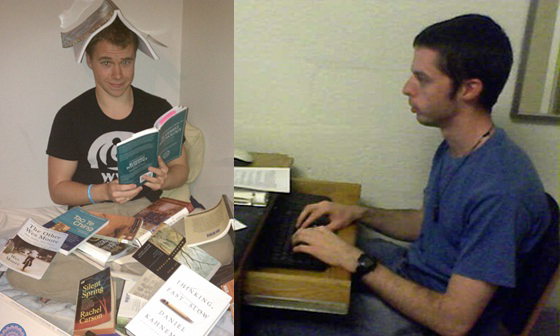


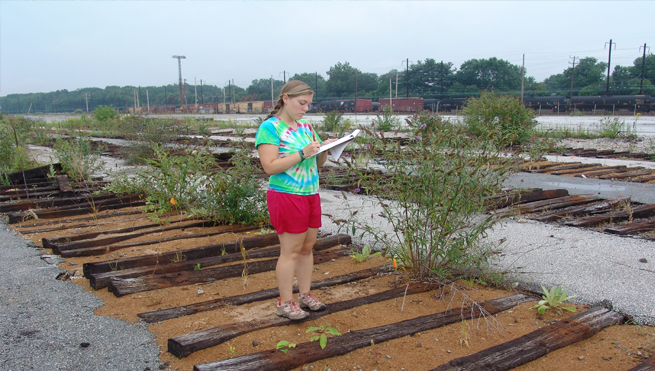
 The Summer Scholars Program offers a doorway into research that many of its participants eagerly pursue during the rest of their undergraduate careers and perhaps even beyond. While Kevin’s research over the summer focused primarily on the impact that the stiffness of the hydrogels had on cell viability, he will next explore the effects of other hydrogel properties on viability to ensure that the hydrogels can most effectively aid in blood vessel cell replacement. For junior ecology and biology student Samantha Nestory, her work on re-vegetating a disturbed industrial landscape with Professor Judith Hough-Goldestein in the Department of Entomology and Wildlife Ecology introduced her to restoration ecology, which she now is considering as a possible career path. Each of these students will also produce a senior thesis, earning them the Honors Degree with Distinction come graduation.
The Summer Scholars Program offers a doorway into research that many of its participants eagerly pursue during the rest of their undergraduate careers and perhaps even beyond. While Kevin’s research over the summer focused primarily on the impact that the stiffness of the hydrogels had on cell viability, he will next explore the effects of other hydrogel properties on viability to ensure that the hydrogels can most effectively aid in blood vessel cell replacement. For junior ecology and biology student Samantha Nestory, her work on re-vegetating a disturbed industrial landscape with Professor Judith Hough-Goldestein in the Department of Entomology and Wildlife Ecology introduced her to restoration ecology, which she now is considering as a possible career path. Each of these students will also produce a senior thesis, earning them the Honors Degree with Distinction come graduation.
